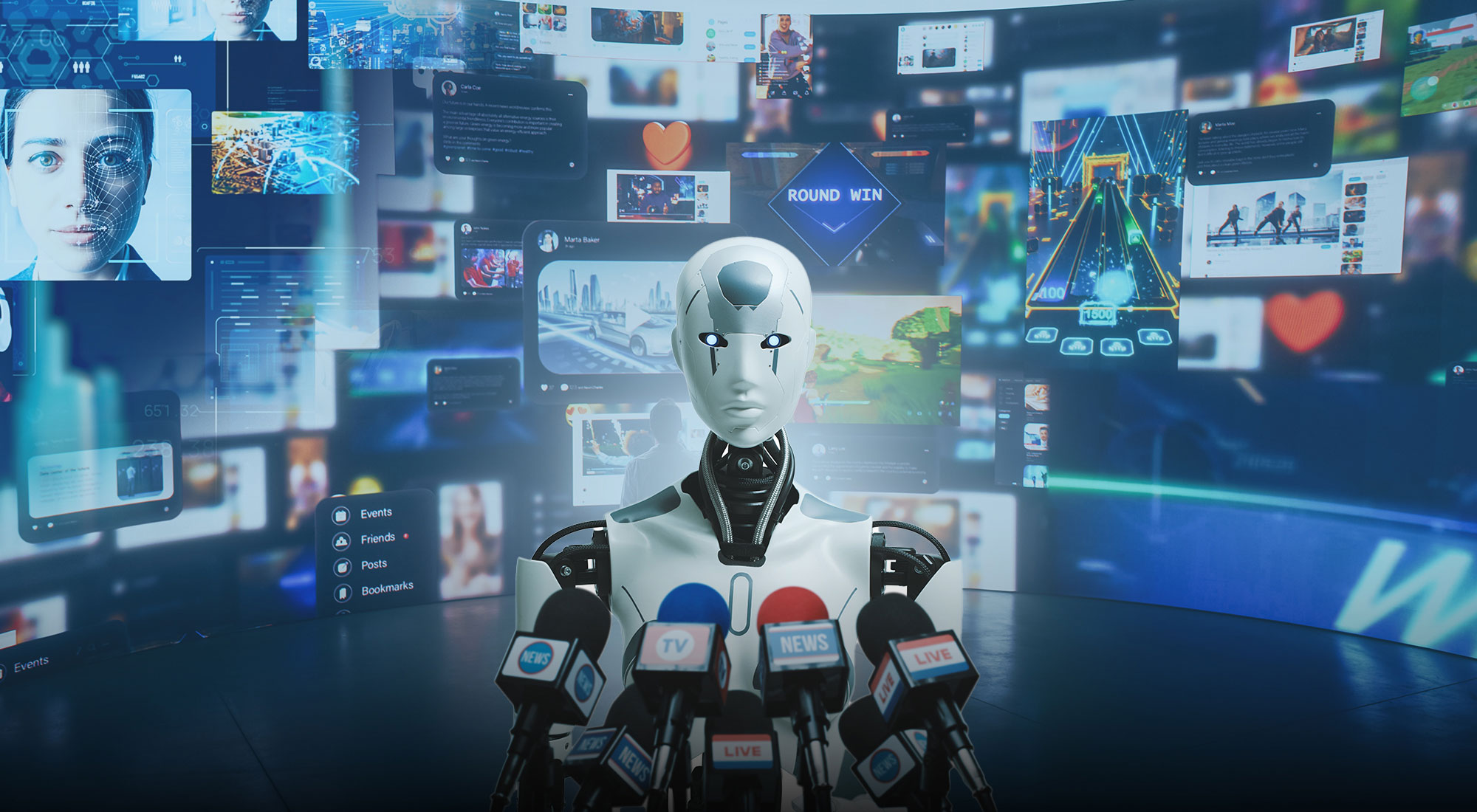Introduction
Artificial intelligence has become a transformative force in journalism, reshaping how information is gathered, verified, and shared. From automated reporting to predictive analytics, AI is now at the center of global media operations. Political institutions, celebrities, and news organizations alike depend on AI systems to interpret audience behavior and tailor communication strategies effectively.
This technological shift is not only about efficiency but also about trust. AI helps detect misinformation, strengthen media accountability, and foster transparency. However, it also raises new questions about ethics, authenticity, and control in the digital age.
As newsrooms, governments, and influencers increasingly rely on algorithms to reach audiences, AI is redefining the relationship between power, information, and public perception on a global scale.
The Evolution of AI in Newsrooms
AI has revolutionized journalism by automating data processing, identifying emerging trends, and assisting reporters in content creation. News organizations use algorithms to track breaking news, generate financial summaries, and personalize articles for readers.
This integration allows for faster, more precise reporting while maintaining editorial standards. Journalists can focus on analysis and storytelling as AI handles repetitive data tasks. Predictive analytics further help identify which topics will resonate with audiences, ensuring relevance in a crowded media landscape.
The result is a more responsive and efficient form of journalism that blends human judgment with technological intelligence.
Politics in the AI-Driven Media Age
Governments and political entities now use AI to shape narratives and assess public sentiment. Data-driven insights guide speeches, campaigns, and policy communication. Machine learning models can detect emerging issues and inform leaders on how to address them strategically.
AI tools also play a crucial role in combating misinformation and identifying coordinated propaganda efforts. This enhances the integrity of political communication and ensures a more transparent information environment.
However, the growing use of AI in political messaging also demands accountability. Ethical oversight is essential to prevent manipulation and ensure that AI remains a tool for truth rather than influence distortion.
Celebrity Voices and Digital Advocacy
Celebrities increasingly engage in digital advocacy using AI-enhanced platforms. Social media analytics allow them to understand audience reactions, measure impact, and refine campaign strategies. Many use these insights to support causes related to human rights, environmental protection, and equality.
The combination of fame and technology transforms advocacy into a global movement. AI enables precise targeting, ensuring that each message reaches audiences most likely to engage and take action. This evolution has made celebrity influence both strategic and measurable in the age of digital activism.
Ethics and Accountability in AI Journalism
While AI offers immense benefits, it also introduces ethical challenges. Algorithms trained on biased data can unintentionally reinforce stereotypes or distort facts. Newsrooms must therefore adopt transparent data practices and human oversight to preserve objectivity.
The intersection of AI, journalism, and politics underscores the need for responsible innovation. Ethical standards, public trust, and editorial independence must remain the foundation of modern journalism, even as automation accelerates.
FAQs
How is AI changing journalism? AI automates reporting, tracks trends, and helps journalists create personalized, data-driven content more efficiently.
What role does AI play in political communication? AI analyzes sentiment, detects misinformation, and informs campaign and policy strategies for greater transparency.
Can celebrities use AI for advocacy? Yes, AI helps celebrities optimize campaigns, target audiences, and measure global impact effectively.
Are there risks in AI-driven media? Risks include bias, misinformation, and reduced editorial oversight, which require strong ethical regulation.
How can media ensure AI is used responsibly? Transparency, accountability, and human editorial control must guide all AI-driven processes in journalism.
Conclusion
AI is redefining global journalism and political communication, merging data precision with human insight. The technology enhances storytelling, improves accountability, and fosters more informed dialogue across societies.
Looking ahead, maintaining ethical standards and transparency will be critical. As AI continues to evolve, its role in shaping public perception must remain rooted in truth, fairness, and the shared goal of strengthening global trust in information.






